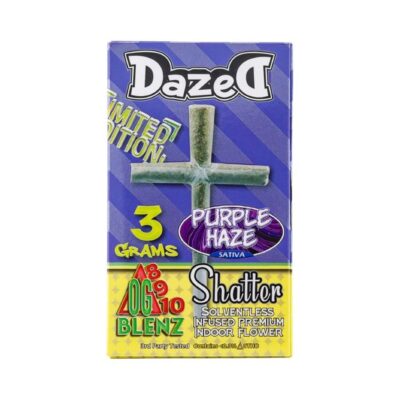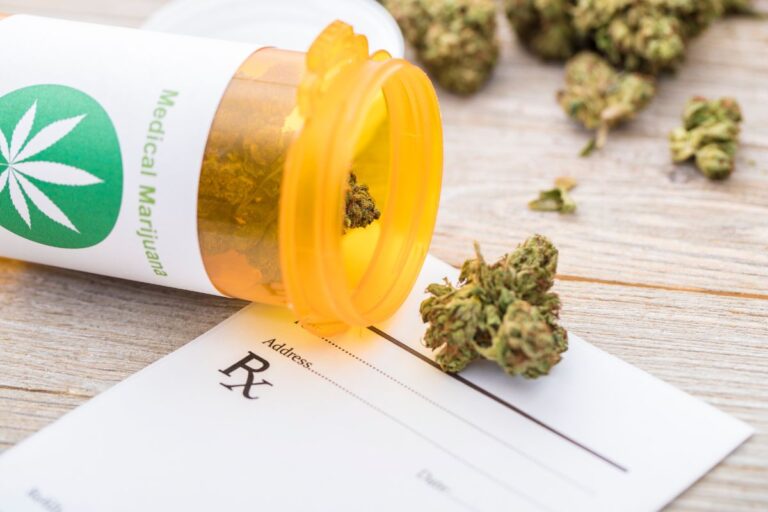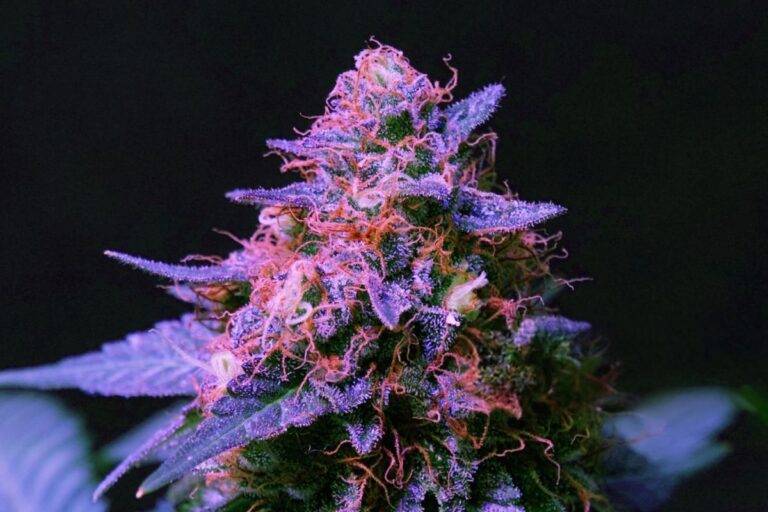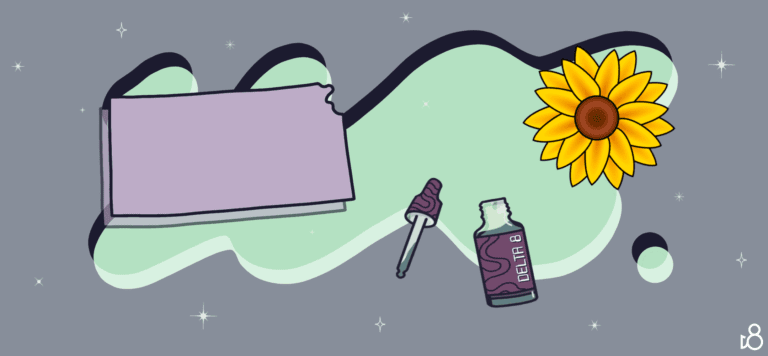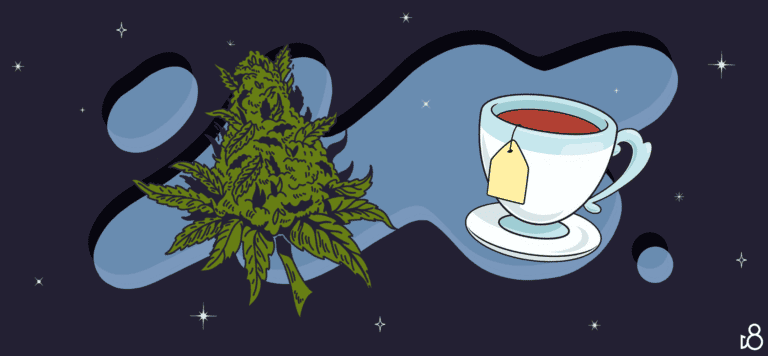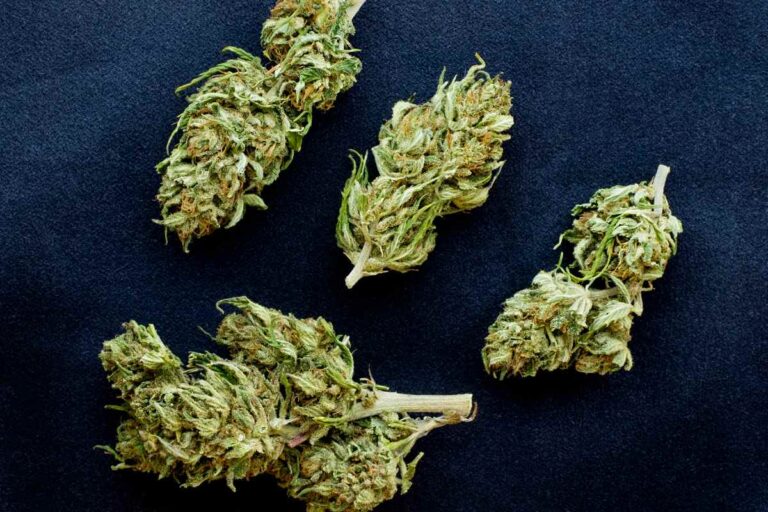Does THCa Make You Feel High? The Ultimate Guide
Oops! Seems like we stumbled into a bit of trouble. Just holler, “No way, Jose!”
Raw cannabis plants contain a non-psychoactive cannabinoid known as THCa (tetrahydrocannabinolic acid).
However, when heated or exposed to oxygen, THCa decarboxylates into THC (tetrahydrocannabinol), the well-known psychoactive compound that produces the “high” associated with cannabis use.
This raises the question: does THCa make you feel high? In this ultimate guide, we’ll explore the science behind THCa and THC, their effects on the body, and whether consuming THCa can produce a psychoactive experience.

Understanding THCa
THCa is the most abundant cannabinoid found in raw cannabis plants, and it’s also a precursor to THC.
THCa doesn’t produce psychoactive effects on its own, which means consuming raw cannabis won’t get you high.
However, THCa has several potential health benefits, including anti-inflammatory, neuroprotective, and antiemetic properties.
The Science Behind THC
THC, on the other hand, is a psychoactive cannabinoid that produces the characteristic high associated with cannabis use.
THC binds to CB1 receptors in the brain, which can alter perception, mood, and cognition. When THC is consumed, it produces a range of effects, including euphoria, relaxation, altered sense of time, and increased appetite.
Can THCa Make You Feel High?
While THCa is not psychoactive, some users report feeling mild psychoactive effects when consuming raw cannabis.
This could be due to the entourage effect, a phenomenon where cannabinoids and other compounds found in cannabis work together to produce unique effects.
Additionally, consuming raw cannabis may increase the bioavailability of THCa, allowing more of it to enter the bloodstream and potentially produce psychoactive effects.
However, to experience the full psychoactive effects of cannabis, THCa must be decarboxylated into THC.
This can be achieved through smoking, vaping, or heating cannabis buds in an oven or on a stovetop.
Once decarboxylated, THC can produce a range of psychoactive effects, including a sense of euphoria, relaxation, altered sense of time, and increased appetite.
THCa vs. THC: Which is Better?
The answer to this question depends on the individual’s needs and preferences. THCa has several potential health benefits, including anti-inflammatory, neuroprotective, and antiemetic properties.
Consuming raw cannabis can also provide a more subtle, full-body experience compared to the intense psychoactive effects of THC.
On the other hand, THC is the primary psychoactive cannabinoid in cannabis and is responsible for producing the characteristic high associated with cannabis use.
THC has also been shown to have several potential health benefits, including pain relief, antiemetic properties, and anti-inflammatory effects.
How to Consume THCa
If you’re interested in consuming THCa for its potential health benefits, there are several ways to do so.
The easiest way is to consume raw cannabis, either by juicing the leaves and stems or incorporating them into smoothies or salads.
Keep in mind that consuming raw cannabis won’t produce psychoactive effects, but it may provide subtle health benefits.
Another way to consume THCa is through cannabis tinctures or topicals.
These products are made by extracting THCa and other cannabinoids from the cannabis plant and infusing them into a carrier oil or cream. This allows for targeted, localized relief without the psychoactive effects of THC.
Delta-8 THC Products
Delta-9 THC Products
Delta-10 THC Products
Shop our top brands:
Conclusion
In conclusion, THCa is a non-psychoactive cannabinoid found in raw cannabis plants. Consuming raw cannabis won’t produce psychoactive effects, but it may provide subtle health benefits.
While some users report feeling mild psychoactive effects when consuming raw cannabis, to experience the full psychoactive effects of cannabis, THCa must be decarboxylated into THC.
THC is the primary psychoactive compound in cannabis and is responsible for producing the characteristic high associated with cannabis use. However, THCa has several potential health benefits, including anti-inflammatory, neuroprotective, and antiemetic properties.
Consuming THCa can be done by juicing raw cannabis leaves and stems, incorporating them into smoothies or salads, or through cannabis tinctures and topicals.
These products contain THCa and other cannabinoids, providing targeted relief without the psychoactive effects of THC.
Overall, THCa does not produce a psychoactive experience on its own, but it may provide subtle health benefits.
To experience the full psychoactive effects of cannabis, THCa must be decarboxylated into THC through heating or exposure to oxygen.
It’s essential to understand the differences between THCa and THC and their effects on the body to make informed decisions about cannabis consumption.
FAQs
Is THCa legal to consume?
Yes, THCa is legal to consume as long as it’s obtained from legal cannabis sources.
Can consuming THCa cause a failed drug test?
It’s unlikely, as most drug tests look for THC, not THCa. However, it’s important to be aware that some drug tests may detect THCa and to consult with a medical professional before consuming any cannabis products.
Can consuming raw cannabis get you high?
No, consuming raw cannabis won’t produce psychoactive effects, as THCa needs to be decarboxylated into THC to produce the characteristic high associated with cannabis use.
What are the potential health benefits of consuming THCa?
THCa has several potential health benefits, including anti-inflammatory, neuroprotective, and antiemetic properties.
What’s the best way to consume THCa?
The best way to consume THCa depends on the individual’s needs and preferences. Consuming raw cannabis provides subtle health benefits, while tinctures and topicals offer targeted relief without the psychoactive effects of THC. It’s important to consult with a medical professional before consuming any cannabis products.
Resources:




